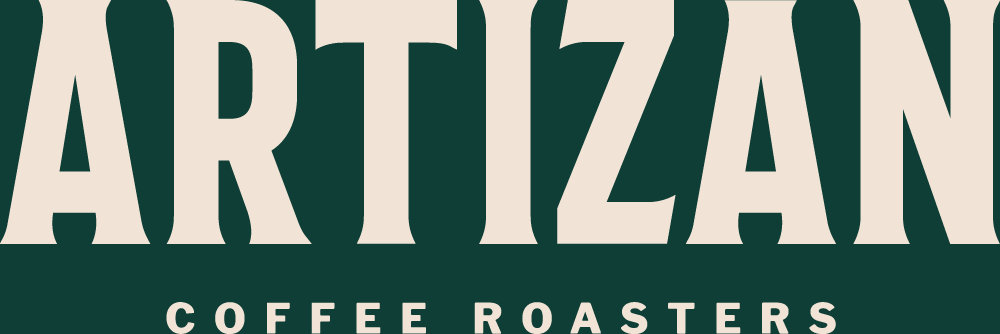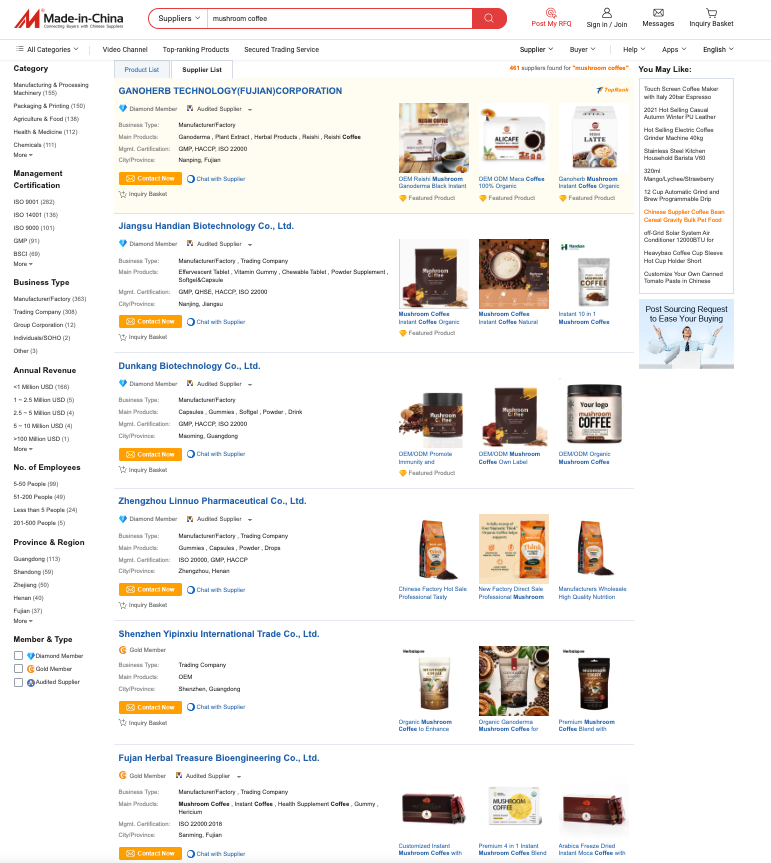In recent years, mushroom coffee has surged in popularity due to its unique combination of traditional coffee and the purported health benefits of medicinal mushrooms.
Promoted as a healthier alternative to regular coffee, mushroom coffee boasts benefits such as enhanced focus, reduced stress, and improved immunity.
But as this trend continues to grow, an important question arises: Do you know where your mushroom coffee comes from?
For many consumers, the answer might be surprising. A significant portion of mushroom coffee available in the market is produced in China.
A quick search on Alibaba, a well-known marketplace for sourcing goods globally, reveals numerous suppliers offering "organic instant mushroom coffee" from Chinese manufacturers.
While these products may seem appealing due to their competitive pricing, it’s essential to look beyond cost and consider the implications of where and how your coffee is made.
The Importance of Transparency in Food Production
Food production transparency is more than just a trend—it's a necessity in today’s market.
As consumers, we want to know the origin of our food, how it's grown or processed, and whether it meets safety and quality standards.
Unfortunately, China has faced several high-profile food safety scandals over the years, raising concerns about its ability to maintain stringent regulatory oversight.
While it’s important to acknowledge that China is a major player in global food production, it’s equally vital to examine its track record when it comes to food safety.
Below, we’ll discuss some of the most notable incidents that have impacted consumer confidence and underscored the risks associated with purchasing food products from the region.
Food Safety Incidents in China
1. 2008 Melamine Milk Scandal
One of the most infamous food safety scandals in recent history was the melamine milk crisis of 2008.
Infant formula produced by Sanlu Group was found to be adulterated with melamine, a chemical typically used in manufacturing plastics. The substance was added to artificially boost protein levels during testing.
Tragically, this contamination resulted in over 290,000 infants falling ill and at least six deaths.
The incident not only caused a public health crisis but also severely damaged the reputation of China’s dairy industry. It served as a wake-up call for consumers and regulators worldwide to scrutinize food imports more carefully.
([Learn more] (https://en.wikipedia.org/wiki/2008_Chinese_milk_scandal))
2. 2011 Gutter Oil Scandal
In 2011, another shocking food safety issue emerged: the “gutter oil” scandal.
Authorities discovered that used cooking oil—often collected from gutters, sewers, and restaurant waste—was being illegally recycled and sold as new cooking oil.
This dangerous practice posed serious health risks due to harmful contaminants and carcinogens present in the recycled oil.
The scandal led to widespread outrage and underscored the importance of stringent food production oversight.
3. 2024 Cooking Oil Transportation Scandal
As recently as July 2024, reports emerged that fuel tankers were being repurposed to transport cooking oil without proper cleaning, leading to potential contamination.
The state-owned company Sinograin was implicated in this practice, sparking public outcry. The scandal highlighted the ongoing challenges of ensuring food safety compliance in large-scale operations.
([Learn more](https://www.ft.com/content/e7300e9e-73b2-426d-9bc7-db8788dd3f61))
4. Toxic Pesticides in Tea
Chinese tea exports have also faced scrutiny due to the use of banned pesticides.
In 2012, tests conducted by Greenpeace revealed that over half of the tea samples from major Chinese brands contained traces of hazardous chemicals.
Some of these chemicals were not approved for use on tea plants, raising serious health concerns for consumers.
([Learn more](https://www.greenpeace.org/))
5. Counterfeit Food Products
Counterfeit food products are another ongoing issue in China. From fake eggs to counterfeit rice made of plastic, these incidents have alarmed consumers worldwide.
In one case, fake alcoholic beverages caused poisoning and even death, prompting crackdowns on counterfeit operations.
These cases serve as stark reminders of the potential risks associated with unregulated or poorly monitored food production systems.
Why It Matters for Mushroom Coffee
The food safety issues outlined above are not limited to specific products; they highlight systemic problems within certain regions' supply chains.
When it comes to mushroom coffee, the same concerns apply. Medicinal mushrooms are known for their health benefits, but their efficacy and safety depend on how they are cultivated, harvested, and processed.
Sourcing mushroom coffee from regions with a history of food safety lapses can raise questions about contamination, pesticide use, and overall quality control.
Behind the Label: The Truth About Imported Mushroom Coffee
Many companies selling mushroom coffee imported from China charge premium prices, leading customers to believe they are getting a high-quality product.
However, what often goes unnoticed is that these companies are primarily marketing operations with no actual production facilities. They focus solely on branding and profit, outsourcing the manufacturing process to overseas suppliers.
Without direct oversight of production, these companies may lack transparency and control over the quality of their products. As a result, consumers might unknowingly purchase coffee made under questionable conditions or with inferior ingredients—all while paying a premium price.
Why Artizan Coffee’s Mushroom Coffee Stands Out
At Artizan Coffee, we believe that transparency, quality, and safety should never be compromised. That’s why our mushroom coffee is proudly sourced from farms in California and produced in our FDA and USDA-inspected facility in South Florida.
Here’s what sets us apart:
1. Locally Sourced Ingredients: Our medicinal mushrooms are grown on trusted California farms that prioritize sustainable and ethical farming practices.
2. Rigorous Standards: Our facility adheres to stringent FDA and USDA guidelines, ensuring that every batch of coffee meets the highest safety and quality standards.
3. Certified Organic: As a USDA-certified organic producer, we are committed to providing coffee that is free from synthetic chemicals, pesticides, and other harmful additives.
4. Full Transparency: We invite our customers to verify our certification status by visiting the USDA Organic Integrity Database and searching for "Artizan Coffee" under the operation field. You can also contact our certifier, Americert International, for further details.
5. Ethical Production: By sourcing and producing our coffee locally, we not only support U.S. farmers but also minimize our carbon footprint, making our products a sustainable choice for conscientious consumers.
The Benefits of Mushroom Coffee You Can Trust
When you choose Artizan Coffee’s mushroom coffee, you’re not just purchasing a product—you’re investing in your health and well-being. Our mushroom coffee offers a smooth, rich flavor complemented by the benefits of medicinal mushrooms, including:
- Enhanced focus and concentration thanks to adaptogenic properties.
- Immune system support from powerful antioxidants and beta-glucans.
- Stress reduction through natural compounds that help regulate cortisol levels.
These benefits are only as good as the quality of the ingredients, which is why we take such care in sourcing and producing our coffee.
Why Knowing Your Coffee’s Journey Matters
At the end of the day, it’s your body, your choice.
Do you want mushroom coffee that’s shrouded in mystery and potential risks, or do you want a product made with transparency, care, and quality?
By choosing Artizan Coffee, you’re not only enjoying a superior product but also supporting a company that values your health and the environment.
Don’t settle for less when it comes to your coffee. Explore the Artizan Coffee difference today and taste the quality for yourself.
All Artizan Coffee products are proudly made in the USA.




